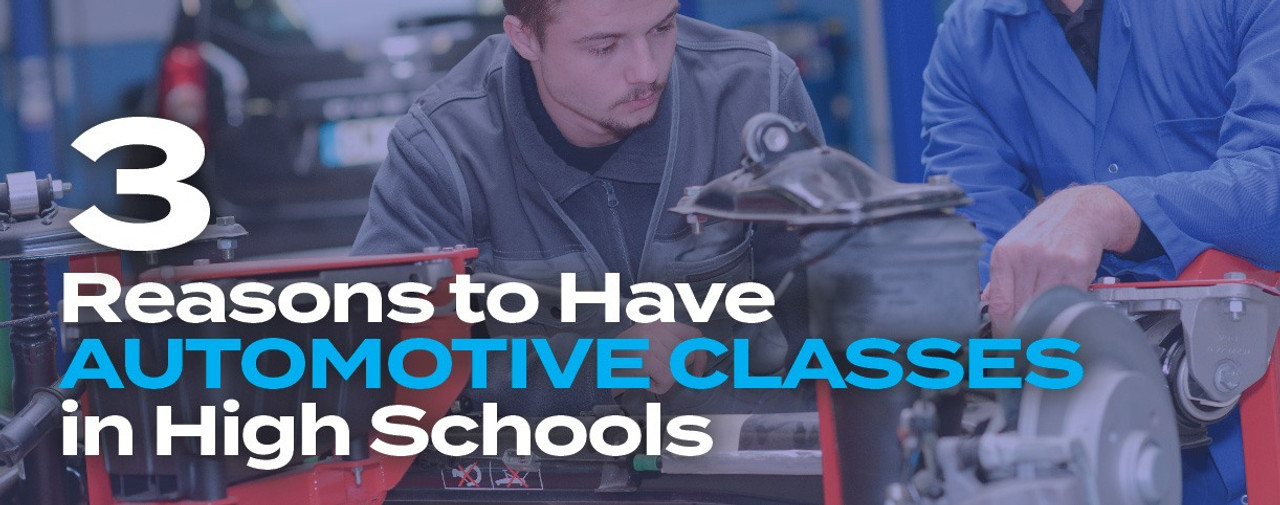Throughout the second half of the 20th century, many schools began to place more emphasis on preparing students for college, as a college degree was what was deemed valuable for a successful career. However, over the past decade, it’s become obvious that higher education isn’t the right path for many students, and in fact many important life skills are being excluded from high school curriculums.
One such class that is no longer as prominent is automotive courses. These classes are often not required for graduation or are simply not offered at a school, so students don’t have the opportunity to learn these valuable skills they’ll need for everyday life as working adults. Here are 3 reasons to bring auto shop classes back to high school.
Inspire Students
Auto shop classes are a great way for students to explore a potential career field they may not have otherwise considered. Addressing the gap between academic and vocational courses can help students who thought they weren’t smart find that they are, and those who thought they would never achieve anything discover that they can. The traditional 4-year college degree is not the ideal choice for every student, as they all have different strengths and passions. Exploring various fields while in school helps students uncover what they like and what they are good at so they can pursue a career that interests them after graduation.
Provide Valuable Skills
Even if a student doesn’t pursue a career in auto mechanics, they will still develop a set of skills that can serve them well in adulthood. Basic maintenance tasks such as changing the oil and checking the brakes can save students hundreds of dollars each year in maintenance costs. In addition, keeping up with preventative tasks like these can help avoid expensive repairs before they happen, further helping students save money. This knowledge also helps them feel more comfortable about car purchasing and maintenance decisions as adults, setting them up for a future of responsible car ownership.
Give Hands-On Experience
Some automotive students will have an easier time learning because they get to work with their hands, instead of sitting at a desk listening to a teacher all day. In addition to learning about vehicle maintenance and repairs, students also have the opportunity to connect academic courses, such as math, to the real-world skills they develop in an auto shop class. Students will need to understand fractions for various bolt sizes and will need to calculate torque, engine size, and horsepower. These experiences help prepare them for future education and careers in the automotive industry, or to simply carry out their own basic maintenance tasks as car owners.
Bring Automotive Classes Back to Your School
Obviously, there are many barriers to implementing or expanding an automotive program in your school. Lack of instructors, safety concerns, and budgetary constraints are all common reasons for not having automotive classes. However, the skills and experience students will gain can not only lead them to a satisfying career, it can also create a more well-rounded generation of future adults.

